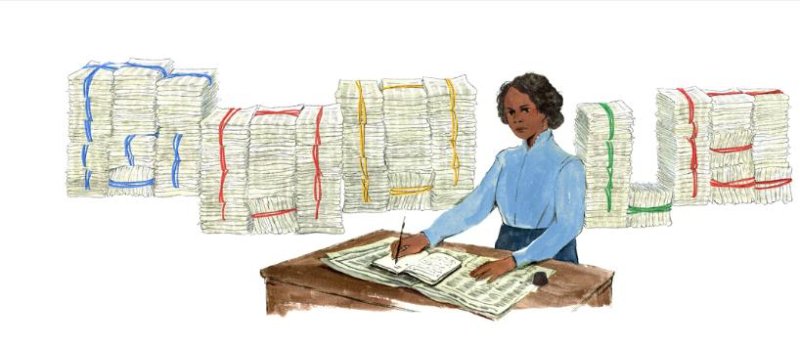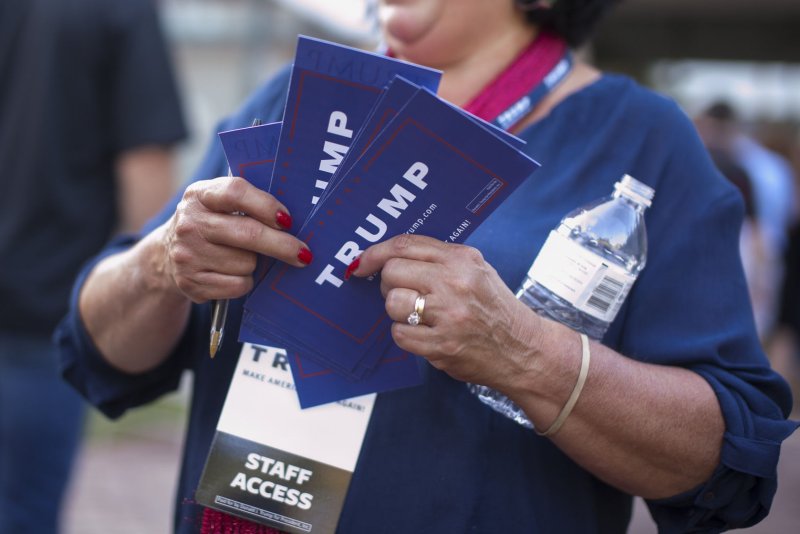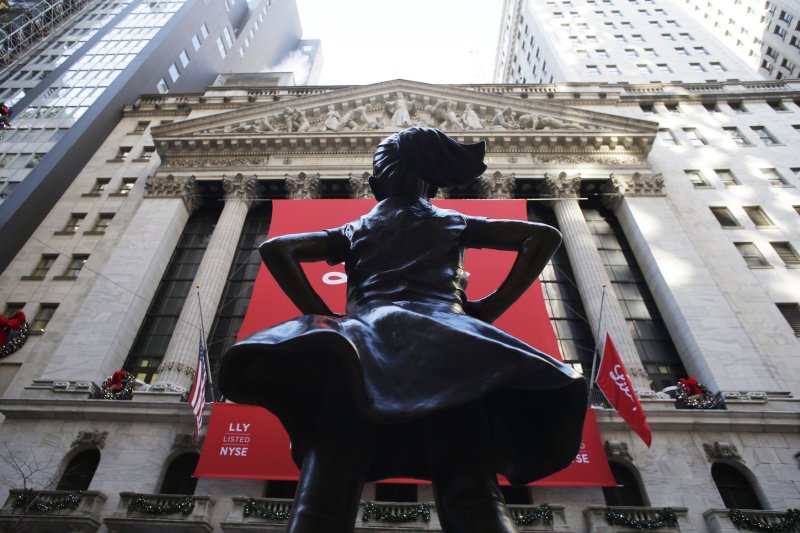Kamala Harris Will Not Be Interrupted and Twitter Is Loving It
Christopher Luu Wed, October 7, 2020

Kamala Harris Will Not Be Interrupted and Twitter Is Loving It
Cardi B, AOC, Lizzo and More Post Strong Reactions to the Presidential Debate
"Do you feel good? Do you feel safe? Do you feel listened to?"
The vice-presidential debates were markedly different from last week's presidential debate in more ways than one. Senator Kamala Harris and Vice President Mike Pence sat down to outline their respective candidates' plans with much less interruption — though a debate isn't a debate without some of that. During one of Harris's responses, Pence tried to speak over her and she responded with a line that trended on Twitter just a few seconds later: "Mister vice president, I'm speaking."
ERIC BARADAT / Contributor
RELATED: Elizabeth Warren on Supporting Friend Kamala Harris for the Vice Presidency: "Woo-hoo!"
Twitter users latched onto the sentiment, applauding Harris for speaking up and pointing out the fact that too often, women get interrupted — so often, in fact, that they sometimes don't even realize it.
SHE SAID “IM SPEAKING” 👏🏻👏🏻👏🏻 GO OFF SIS, GET EM #Debates2020
— Kayla Cercone (@kcercone16) October 8, 2020
"im speaking, im speaking" pic.twitter.com/Qj70U6MsEE
— 🧑🏽🚀 (@spvcemechanic) October 8, 2020
the fact that senator harris just said “excuse me mr vice president im speaking”. i love to see women standing up for themselves. don’t let that dumb white boy interrupt you ladies. what you have to say is important.
— Stella Krone (@StellaKrone) October 8, 2020
“im speaking” 🤣🤣 get em sis #VPDebate pic.twitter.com/xa73nshhnw
— Luc 🏂 (@luciianofuoco) October 8, 2020
“MR VICE PRESIDENT IM SPEAKING, IM SPEAKING!!!”
Drag him Kamala!!!!!!#VPDebate
— Jessica Fyre💫✨ (@TheJessieWoo) October 8, 2020
Men really be too comfortable with talking over women so that “im speaking” was so epic
— Kakarot 🐒 (@__LeslyAlvarez) October 8, 2020
🗣MR VICE PRESIDENT IM SPEAKING! IF YOU DONT MIND LETTING ME FINISH, WE CAN HAVE A CONVERSATION!!!
- signed by women everywhere #VPDebate
— Jessica Fyre💫✨ (@TheJessieWoo) October 8, 2020
When Kamala said “IM SPEAKING” every single woman felt THAT
— mackenzie (@87kenzie) October 8, 2020
Naturally, the memes came quick and fast.
pence: i-
kamala: Vice President, sir im SPEAKING pic.twitter.com/mnzyUHi4vn
— aj singer (@imajsingerrr) October 8, 2020
She said IM SPEAKING, love to see it!!!#Debates2020 pic.twitter.com/p73w6dqFgm
— arsh (@Arsh_DhillonK) October 8, 2020
SHE SAID IM SPEAKING #VPDebate pic.twitter.com/Z6x2odcO96
— emma🌻 (@emmafilet) October 8, 2020
SKSKSKS KAMALA HARRIS TOLD PENCE “IM SPEAKING” YOU TELL HIM QUEEN pic.twitter.com/HnrJYktLgt
— !Megan! (@morethanpilots) October 8, 2020
SHE FUCKING DID IT AGAIN IM SPEAKING pic.twitter.com/lOHSyw1Y9A
— jah ²⁸ thinks you should vote!! (@fuckingltmlsn) October 8, 2020
Remember, the debate isn't even over yet, so there's no telling whether the interruption will be the highlight or if Harris will manage to break the internet with another knockout move

“I’m Speaking”: How Kamala Harris Won The Debate
Leora Yashari Wed, October 7, 2020

The Vice Presidential debate was perhaps destined to be cursed: From President Trump’s COVID-19 diagnosis and allegedly rapid recovery to the two seemingly inadequate pieces of plexiglass separating Vice President Mike Pence and Sen. Kamala Harris, it was hard not to straight up anticipate a disaster. And while we knew that a debate without Trump would feel somewhat low-key by comparison, what we weren’t expecting was Harris delivering a masterclass in how to silence a problematic white man.
Kicking off Wednesday night’s festivities with an “I already won”-level of confidence, Harris delivered expert responses to moderator Susan Page’s questions about the Trump administration’s handling of COVID-19. “The American people have witnessed what is the greatest failure of any presidential administration in the history of our country,” Harris said, explaining how Trump’s lack of action resulted in frontline workers being treated as “sacrificial.”
Harris also cited the fact that both Trump and Pence understood the repercussions of a COVID-19 spread as early as January 28, but neglected to inform the American people. To this, Pence responded by bringing up the 2009 Swine flu outbreak before suggesting that Harris should “stop playing politics with people’s lives.” Which, ok!!
But while Pence deflected question after question, randomly bringing up Amy Coney Barrett at every turn, Harris stole the show. In a divisive moment when Pence pulled a Trump and audaciously tried to interrupt Harris during her speaking time, she simply stopped, turned in his direction and said: “Mr. Vice President, I’m speaking.”
Pence continued to ramble and attempt to derail Harris, speaking over her (and over her, and over her), and each time, Harris smiled (nay, chuckled) and said “Mr. Vice president, I’m speaking, okay?”
And Harris wasn’t the only woman at the debate who Pence regularly interrupted. Over the course of an hour and a half, Page began to sound like a broken record by repeating the words, “Thank you Mr. Vice President,” to indicate that Pence’s speaking time was up. And when he refused to stop speaking, Page was forced to remind him of the debate rules.
The moment — while absolutely viral-worthy — was more than just a future Saturday Night Live sketch: It showed us what a Vice President looks like. While Pence was prepared to divert answers and speak over literally every person on the debate stage, Harris, one of only four women who have participated in presidential and vice presidential debates, remained calm, deliberate in her answers, and left no room for sexist bait.
“It is within our power, and if we use our power, and if we use our voice, we will win,” Harris said.
The Winner of the Debate Was Kamala Harris’s Sexist-Bashing Squints
Liz Plank Thu, October 8, 2020

Photo credit: Getty Images
From Cosmopolitan
There was a lot to be infuriated about while watching Wednesday’s first and only vice presidential debate between Senator Kamala Harris and Vice President Mike Pence. We saw an old white man emerge from a COVID-19-infested hot zone with what looked like a case of pink eye and a flashy fly as a plus-one repeatedly utter the moderator’s name “Susan” to distract viewers from his incessant interrupting of the woman he was debating and the other woman trying to moderate him. But we also got to see the delight Harris took in shutting down Pence’s pompous sexism.
Every woman watching at home could relate to being subject to the kind of patronizing and self-righteous treatment from men like Pence, but what felt refreshing was the way Kamala Harris seemed to relish the opportunity to respond to it. She delivered some serious squints, followed by a healthy and homicidal dose of side-eye, rapidly shifting to eye rolls and sly, knowing smiles. At certain moments, she broke the fourth wall to stare straight into the camera, silently forming an allegiance with the women watching at home who know firsthand that brand of not-so-subtle misogyny.
Kamala facial expressions are taking me OUT #VPDebate pic.twitter.com/c53Hv5GOwH
— Drebae (@Drebae_) October 8, 2020
Every single woman watching the debate could relate. We all know what it’s like to be stuck in the classic sexist double-bind that demands we be both kind and commanding but punishes us no matter which of these two completely conflicting options we go with. And since that pressure is worse for Black women, who get dubbed the “angry Black woman” no matter what they do or the level of fame or celebrity they ascend to, it felt revolutionary to see Harris, a Black and South Asian woman, greet the smug sexism of a lying, anti-choice white guy with so much unadulterated joy.
Her strategy was genius because it felt like a lesson for every female leader in the workplace. Pence was duplicitous about everything from the coronavirus to health care reform and shockingly wouldn’t promise a peaceful transition of power, but since Harris would have faced backlash for interrupting him as much as he interrupted her, she let her face do the talking. Harris didn’t need to tell us that Pence was bald-faced lying. Her rib-tickling facial expressions screamed it for her.
In addition to facial acts of feminist resistance, Harris often responded with a gentle yet firm “I’m speaking,” a phrase that resonated with so many women. (It’s already a T-shirt.) Harris impressively mastered the art of quiet confidence—something Pence’s running mate could learn a thing about. She navigated sexist power dynamics like a trusted pilot going for a soft landing, steering and maneuvering toward the perfect touchdown without a single bump.
Watching Harris negotiate Pence’s house of lies with so much tact and grace was impressive but also simultaneously infuriating because we know Harris has to work twice as hard as the dude next to her, and her performance was way more likely to receive scrutiny than Pence’s.
Don’t smirk. Don’t shake your head. Don’t smile mockingly. Wait.
— Megyn Kelly (@megynkelly) October 8, 2020
The good news is that we know Harris’s strong face game worked because several men are already very distressed about it. While we all remember male pundits spending 2016 telling Hillary Clinton to smile harder, they’ve pivoted to attacking Kamala Harris for “over-smiling.” True story.
While women get scorned for smiling or not smiling enough, men get to show up exactly as they are. Men, particularly those who are white straight cis and able-bodied, get to be human. (Remember how Justice Brett Kavanaugh screamed and cried at his Supreme Court nomination hearings? Or even how Joe Biden said “shut up” to Donald Trump at last week’s presidential debate? It’s almost impossible to imagine a woman in either one of those positions employing those reactions without severe backlash.)
Even after Harris’s exceptional showing, men and women saw the outcome of the VP debate quite differently. According to one CNN poll, 69 percent of women gave a clear victory to Harris, but only 48 percent of men who were asked agreed. This frightening gender gap points to the urgent need for men to learn about the unique discrimination against women and become anti-sexists in their workplaces and homes. Or if they’re Mike Pence, they could just stop using their power to restrict the freedoms of women.
While it may have felt affirming to see Harris reclaim her power—and her joy—on the debate stage, it shouldn’t be up to Black women to be superhuman and consistently save themselves and others from systemic poor treatment. It should be up to all of us to shield them from it. After all, behind every successful Black woman is often some white guy calmly gaslighting her, like we saw on Wednesday night. Wouldn’t it be wonderful if behind every white guy calmly gaslighting a successful Black woman there could be millions of people standing up for her so she doesn’t have to?
The best memes from the 2020 vice-presidential debate, from the giant fly on Pence's head to 'I'm speaking'
Palmer Haasch Thu, October 8, 2020

Vice President Mike Pence and Democratic vice presidential nominee Kamala Harris during the vice presidential debate on October 7, 2020 in Salt Lake City, Utah..
ERIC BARADAT,ROBYN BECK/AFP via Getty Images)
Vice President Mike Pence and Democratic vice-presidential nominee and senator Kamala Harris debated each other on Wednesday night during the 2020 vice-presidential debate.
While the debate was relatively calm in comparison to the previous chaotic debate between Donald Trump and Joe Biden, it still generated plenty of buzz on social media.
The most-memed moment of the night was when a fly landed and rested on Vice President Pence's head.
On Wednesday, Vice President Mike Pence and Democratic vice-presidential nominee and senator Kamala Harris participated in a 2020 vice-presidential debate that, as Business Insider's Sonam Sheth wrote, was remarkably civil in comparison to the previous debate between Donald Trump and Joe Biden.
While this debate brought a relative lack of chaos compared to its 2020 predecessor, there were still plenty of notable (and memeable) interruptions, facial expressions, one-liners, and insects that generated chatter on social media.
Here are some of the best memes and reactions that surfaced online in the aftermath of the debate.
A fly landed on Vice President Pence's head

If you didn't watch the debate in real-time and chose to catch up on Twitter instead, your biggest takeaway from the event would likely be the massive fly that sat perched on Pence's cleanly arranged white hair.
—Business Insider (@businessinsider) October 8, 2020
Within hours, people were creating Twitter accounts left and right to roleplay as the fly.
—Most Famous Fly (@MikePenceFly) October 8, 2020
The Biden campaign was quick to capitalize oon the viral moment, releasing a new piece of merch within hours of the debate: a $10 fly swatter emblazoned with the slogan "Truth Over Flies."

—Joe Biden (@JoeBiden) October 8, 2020
Without a doubt, the fly was the main character of the evening.
—Kyle Woods (@_kywo) October 8, 2020
—Keke Palmer (@KekePalmer) October 8, 2020
One TikTok married the debate fly with the viral video of Nathan Apodaca (@420doggface208 on TikTok) vibing to "Dreams" by Fleetwood Mac while drinking cranberry juice and longboarding.
@ctr_haha
The fly was vibin ##debates ##saltlakecity ##pence ##lds @420doggface208♬ original sound - ctr_haha
Kamala Harris' facial expressions following Pence's interruptions also played out well on social media
CBS News found that Pence interrupted Harris twice as much as the opposite. As BuzzFeed News reported, Harris' facial expressions throughout the debate and reactions to the interruptions quickly became meme fodder on social media.
"Every woman I know has given this look when some man attempts to mansplain or present an idea that isn't theirs," activist Jamira Burley wrote on Twitter.
—Jamira Burley (@JamiraBurley) October 8, 2020
Many pointed out how Harris' facial expressions were reminiscent of other familiar memes, like the Daenerys Targaryen squint, which is also mirrored in popular meme images of actor Chris Hemsworth as Thor in "Thor: Ragnarok."
—nate zed (@NathanZed) October 8, 2020
—Dave Itzkoff (@ditzkoff) October 8, 2020
As The New York Times' Nick Corasaniti reported, Harris made good use of the debate's split-screen format, which allowed one candidate to react while the other spoke. Harris' reactions proved to be an integral part of her debate performance: not only did they help make her feelings known, but they were also instantly memeable
—Alana Moceri (@alanamoceri) October 8, 2020
Kamala Harris telling Pence 'I'm speaking' after he interrupted her was one of the most buzzed-about moments
During one interruption, Harris' pushed back against Pence, saying, "Mr. Vice President, I'm speaking. I'm speaking."
—CBS News (@CBSNews) October 8, 2020
The line was an instant hit on social media, with many noting how it had resonated with them or how they hoped that it would serve as an example to women and girls who had been talked over by men.
@dinonuggets.jpg
PLEASE♬ original sound - connor
—Uzo Aduba (@UzoAduba) October 8, 2020
—Rev. Jes Kast (@RevJesKast) October 8, 2020
—mackenzie (@87kenzie) October 8, 2020
Calls for "I'm speaking" merch were answered within hours, with shirts, koozies, and other merchandise showing up on sites like Etsy and RedBubble.
Overall, one TikTok from user @anania00 sums up how the debate was reflected on social media: from interruptions to Harris asserting that she was speaking to the fly on Pence's head.
@anania00
##duet with @anania00 SHE ATE THIS UPPPP ##tiktokforbiden♬ original sound - annie
Read more:
The biggest moments from the 2020 vice-presidential debate between Mike Pence and Kamala Harris
Fact-checking the vice-presidential debate between Mike Pence and Kamala Harris
A gigantic fly landed and rested on Pence's head during the vice-presidential debate
Mike Pence interrupted Kamala Harris twice as often during the 2020 vice presidential debate, CBS News finds
Read the original article on Insider
















